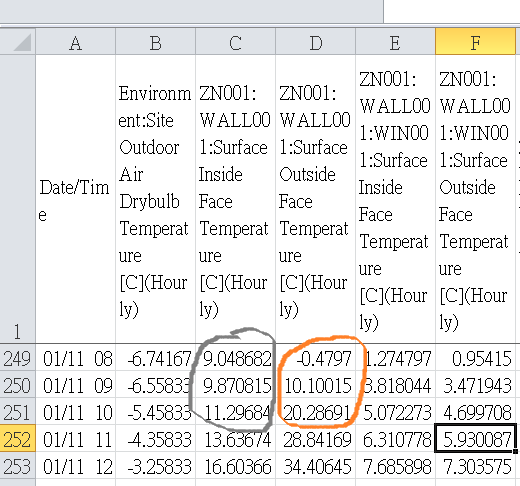Strange problem about the huge surface temperature jump ?
What is the most possible reason causing a huge outside surface temperature jump? ( over 10[C] jump within 1 hour)
Please see the picture below.
1. In the same time period the inside surface temperature jump is about 1.5[C],but the outside surface temperature jump is over 10[C] .
2.It seems that the problem always happens in outside surface temperature jump.(the inside surface temperature jump is normal)
3.Is it a inherent simulation limit ( or bug) in Energy plus? If so , is there any suggestions for the user to avoid this problem.!






